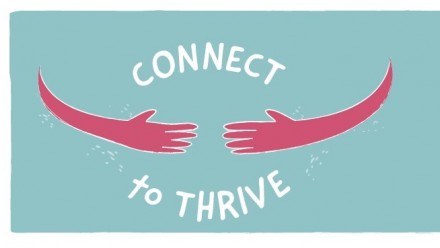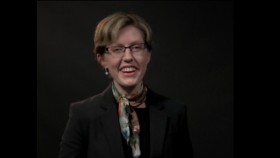ANU EXPERTS: Psychology week (November 11-17)
The Research School of Psychology (RSP) at The Australian National University (ANU) congratulates Australian Psychology Society on its 2018 theme Power of Human Connection: Connect to Thrive.
ANU experts at the Research School of Psychology (RSP) are trying to better understand the importance of connections. A range of social problems from depression and bullying to social prejudice can be understood as “connectedness” issues. Importantly, this insight also points to directions for prevention and treatment; when we connect we thrive. Here are our research highlights.
Professor Kate Reynolds
Professor of Psychology
ANU Research School of Psychology
M: +61 (0)418601495 T: +61 (02) 61250637
E: katherine.reynolds@anu.edu.au
“We are exploring how to create brighter futures through better understanding the role of school connectedness - identification, belonging - on academic achievement, bullying and well-being. Partnering with ACT Education Directorate, the RSP research team has been studying ACT schools for the past 10 years and the research is having an impact nationally and internationally.
“In this project we found positive changes in school climate perceptions and school identification over time were related to improved student engagement and decreased bullying. These results indicate that psychological connection and belonging to the school leads to better outcomes.
“The research is part of a larger effort to develop more effective models of behavior change with a particular focus on human connections and social norms - what others do.”
Professor Michael Platow
Associate Director (Science Education) ANU Research School of Psychology
T: +61 (02) 6125 8457
E: michael.platow@anu.edu.au
“Prejudice reveals social division and a lack of cohesion and connectedness. It has negative implications for individual well-being and social cohesion, yet efforts to reduce it are often unsuccessful. If people believe their own intergroup attitudes - even negative ones - to be correct and normative, anti-prejudice appeals will likely be rejected.
“Anti-prejudice appeals often fall on deaf ears as people fail to see their views as prejudiced and in need of change. What is needed is an analysis of what people believe to be prejudice or not in the first place and how these beliefs are changed.
“My project aims to expand social-psychological knowledge of prejudice by examining beliefs about what prejudice is, as well as the social and psychological factors affecting these beliefs.
“In over 10 studies within Australia, the United States, and Pakistan, the team has demonstrated considerable flexibility in what people understand to be prejudice. Ultimately, this social-psychological Project will develop new knowledge of people's beliefs about what prejudice is, and how these beliefs change. Anti-prejudice appeals can then be better tailored to reduce prejudice and improve Australians' quality of life”
*If you have experienced or witnessed prejudice yourself, you can tell us by responding to our Prejudice Census at http://psychology.anu.edu.au/node/791/edit/prejudice-census .
Dr Tegan Cruwys
Australian Research Council DECRA Fellow, Clinical Psychologist
ANU Research School of Psychology
T: +61 (02) 6125 5023
E: Tegan.Cruwys@anu.edu.au
“Depression is the leading cause of disability for young people in Australia. We know that most young people who recover from depression will relapse, and the biggest risk factor for recurrent depression is social isolation.
“I am conducting the world's first randomised controlled trial comparing two group-based treatments for young people with depression and loneliness.
“Groups 4 Health, a program which supports the development of social group connectedness, and Cognitive Behaviour Therapy, a program that helps challenge negative thinking and unhelpful behaviours.
“In collaboration with Rotary Mental Health and Headspace, this research seeks to support of 200 young people and find the best way to help them get well and stay well.”
Dave Pasalich
Lecturer & ARC Discovery Early Career Researcher
ANU Research School of Psychology
T: + 61 (02) 6125 2067
M: +61 (0) 409 888 068
E: dave.pasalich@anu.edu.au
“Increasing numbers of Australian children are entering out-of-home-care and being placed with kinship parents - grandparents, uncles and aunts. Although kinship parents have a strong desire to preserve family and cultural connections and provide for their children in care who have trauma histories, many feel unprepared and unsupported in navigating the complex challenges in this caregiving role.
“I am collaborating with ACT Children, Youth and Families and local out-of-home-care agencies in conducting a randomised trial of an attachment and trauma informed program for kinship parents and their children.
“I aim to evaluate the effectiveness of this program for enhancing children’s emotional connection with their kinship parents and in turn promoting child and family resilience.”










